On the afternoon of July 7th, the first conference of the Shenzhen Advanced Materials Innovation Alliance of the Chinese Materials Research Society and the Chinese Materials Science Development Seminar was successfully held. The conference was jointly sponsored by Peking University Shenzhen Graduate School (PKUSZ) and the School of Materials Science and Engineering (MSE), Peking University (PKU). Deans, teachers from schools of materials sciences, and representatives of enterprises across China gathered at the International Conference Center of Shenzhen University Town to discuss the development of materials discipline around the theme of “AI for materials.”
Academician Yu Shuhong, the Dean of the Institute for Innovation Research at Southern University of Science and Technology, Professor Kang Feiyu, the Associate Dean of Tsinghua Shenzhen International Graduate School, Professor Han Gaorong, the former Dean of the School of Materials Science at Zhejiang University, Professor Tan Pingheng, the Dean of the College of Materials Science and Opto-Electronics Technology at the University of Chinese Academy of Sciences, Professor Lin Yuan, the Dean of the School of Materials and Energy at the University of Electronic Science and Technology of China, Professor Chen Xiaoqiang and Researcher Hu Lipeng from the College of Materials Science and Engineering at Shenzhen University and other Associate Deans were among the 32 deans and teachers representing 26 universities, Dr. Yu Fan, the General Manager of Huawei MindSpore Technology/AI4Sci LAB Director, and Dr. Li Zikun from BTR New Energy Technology Research Institute Co., Ltd., Academician Zhang Jin, member of the Standing Committee and vice president of Peking University and the Chancellor of PKUSZ, Professor Pan Feng, Associate Dean of PKUSZ, Professor Tian Yonghong, Dean of the School of Electronic and Computer Engineering of PKUSZ, as well as leaders and teachers from relevant functional departments of PKUSZ and SMSE of PKU, attended the conference. The conference was chaired by Zou Ruqiang, Secretary of the CPC SMSE Committee and Dean of SMSE.

The Conference
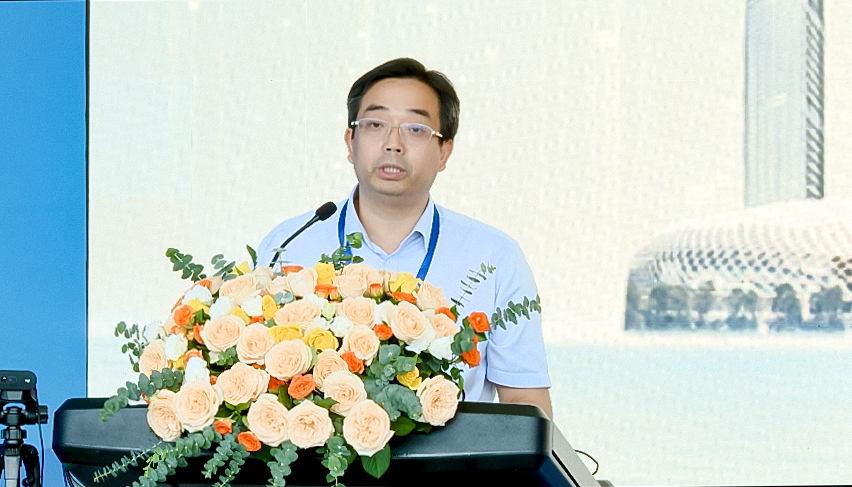
The conference was presided over by Zou Ruqiang.
Academician Zhang Jin, a member of the Standing Committee and Vice President of Peking University, as well as the Chancellor of PKUSZ, delivered an online speech, officially inaugurating the conference. Zhang Jin expressed his gratitude to everyone for visiting PKUSZ and extended a warm welcome. He provided an overview of Peking University Shenzhen Graduate School, highlighting PKUSZ’s thriving presence in Shenzhen and the Guangdong-Hong Kong-Macao Greater Bay Area (GBA) for over 20 years. PKUSZ adheres to the development concept of “problem orientation, north-south linkage, AI traction, and innovation integration.” Zhang Jin emphasized that the conference’s theme is “AI for Materials”, with key discussion questions such as “How can artificial intelligence contribute to the development of materials science?” and “How can AI empower materials science?” He encouraged academicians, teachers, and business representatives to share their thoughts freely and provide valuable suggestions.
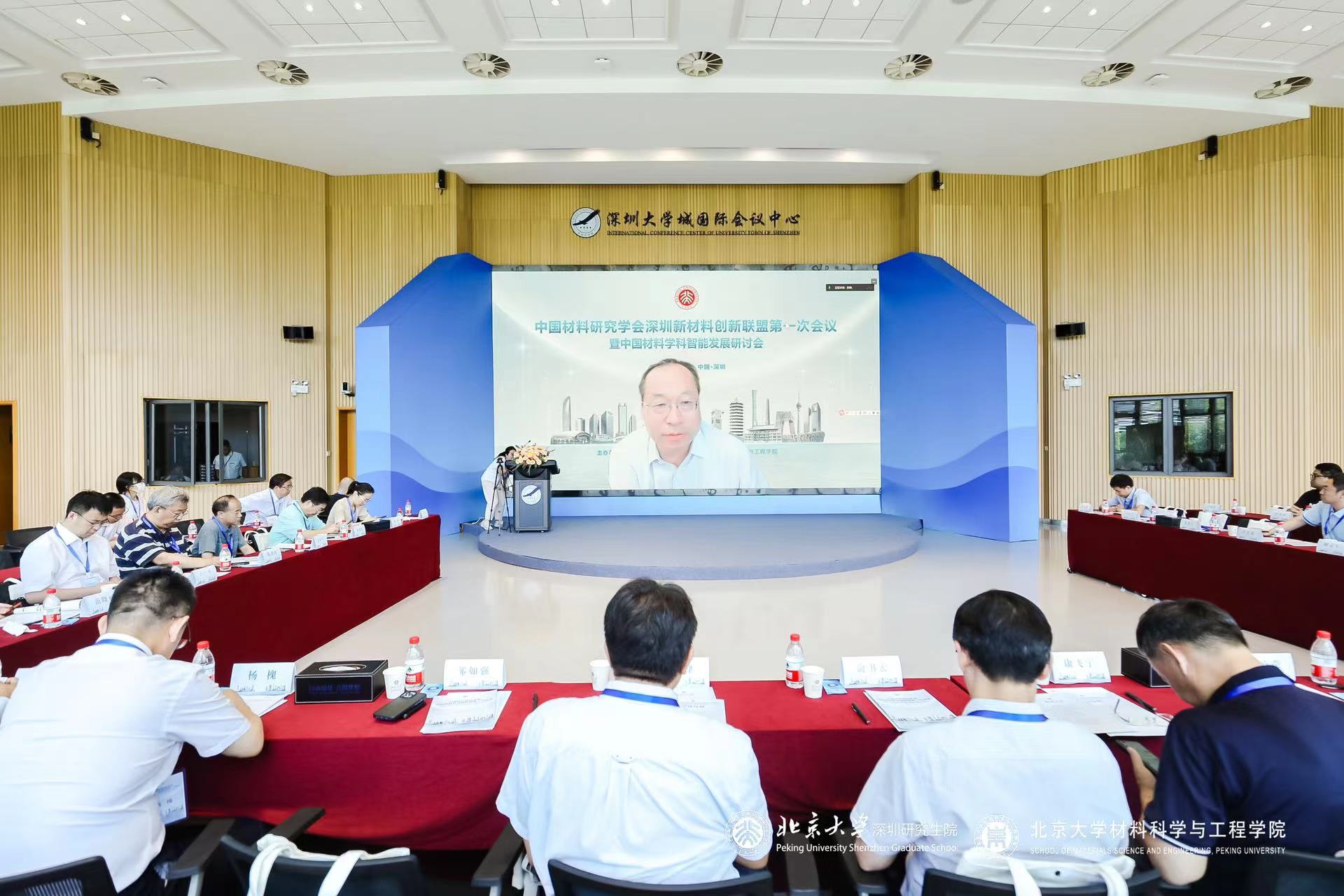
Zhang Jin attended the meeting and delivered a speech online.
Subsequently, Professor Yang Huai from the MSE, PKU, presided over the presentation session of the conference.
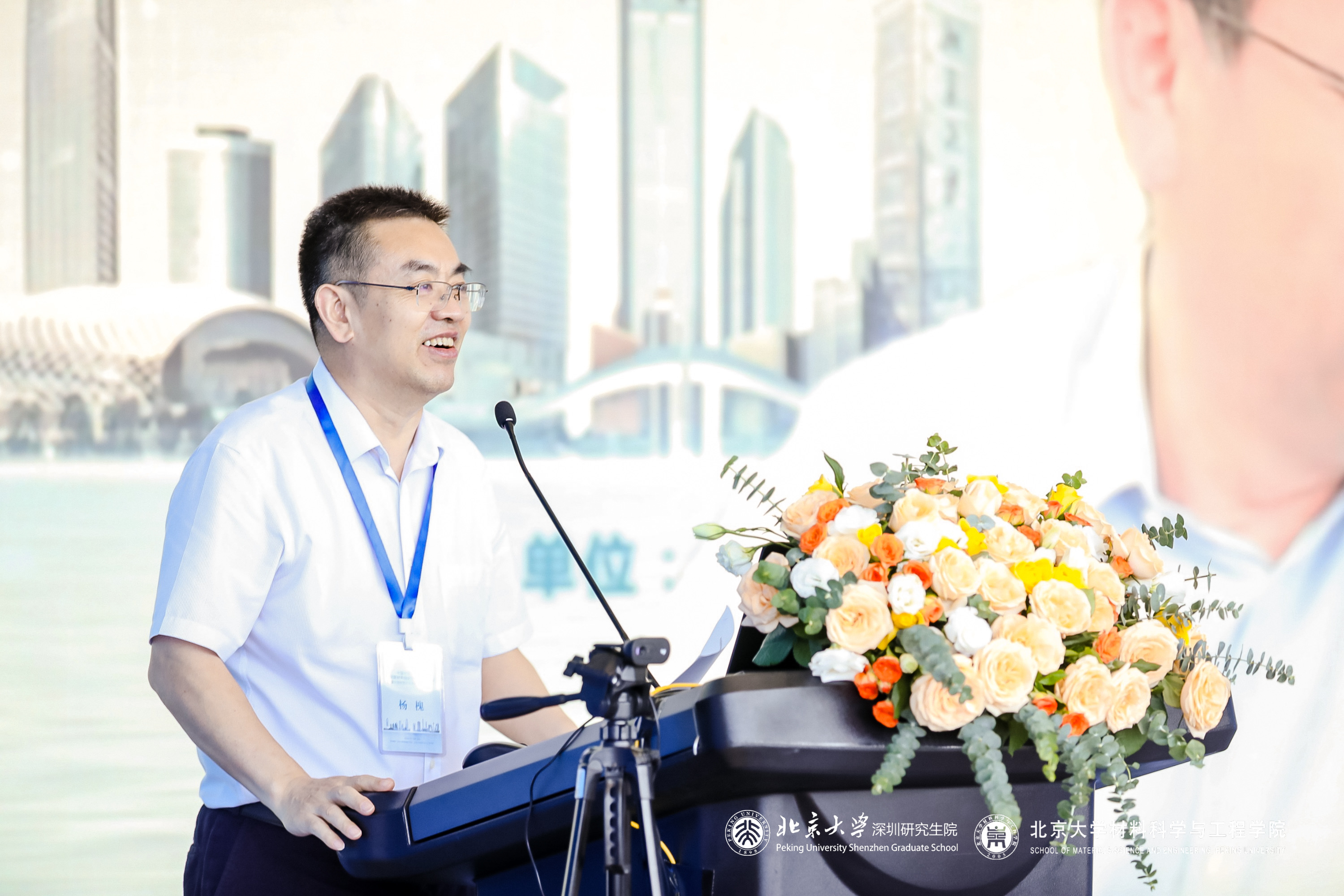
Yang Huai presided over the presentation section.
Academician Yu Shuhong, Dean of the Institute for Innovation Research at Southern University of Science and Technology, highlighted in his report that “the innovation of materials is the main driving force of social development”. He focused on introducing his research in the field of biomimetic materials for future engineering materials. His research has achieved numerous cutting-edge milestones globally, including the development of “a bendable bioceramic” and “biomass-based structural materials”.
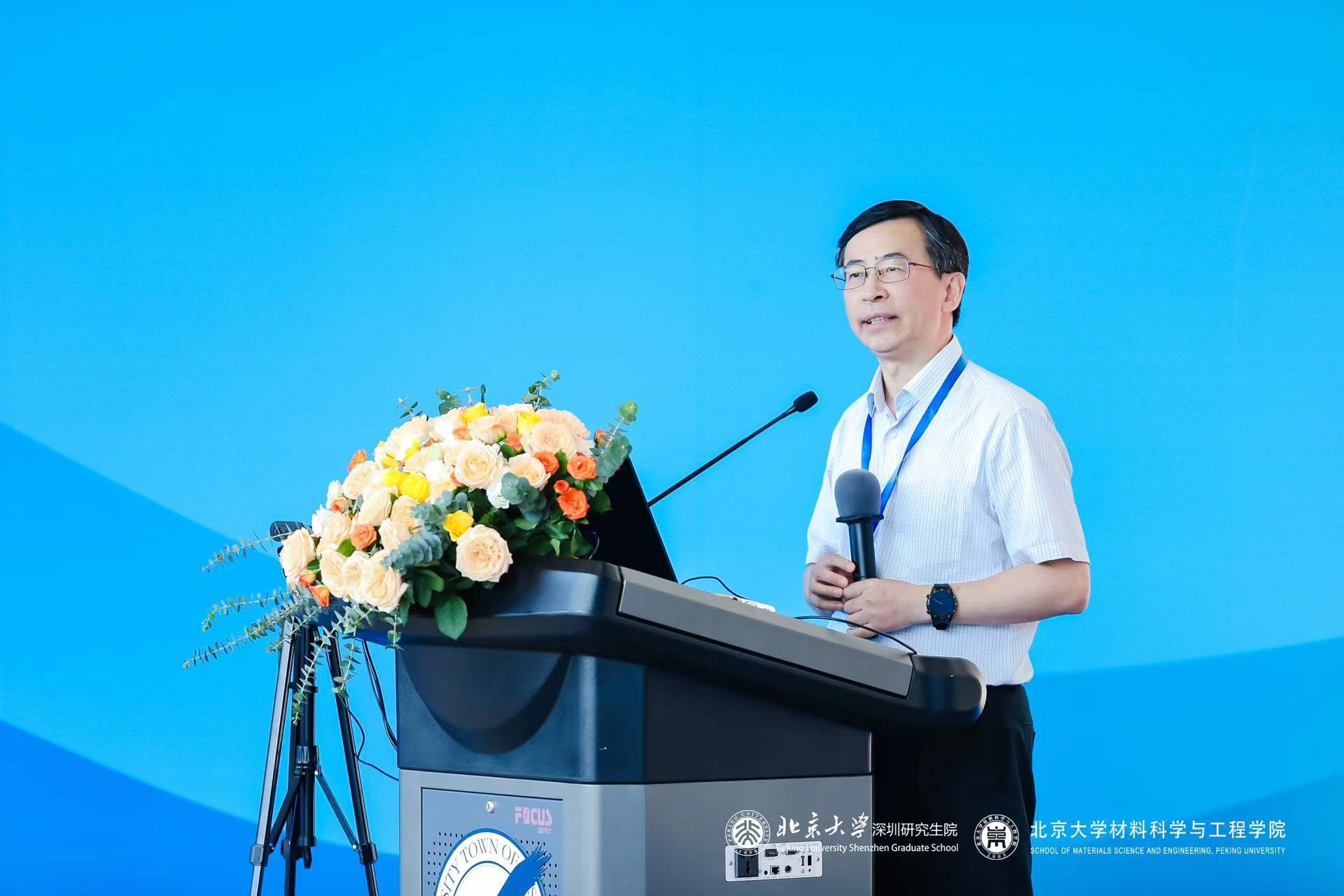
Yu Shuhong is making his report.
Professor Tian Yonghong, Dean of the School of Electronic and Computer Engineering at PKUSZ, delivered a presentation on the theme of “From Large Models to AI for Science: AI Traction and Cross Integration”. In the presentation, he introduced the definition, elements, and various reflections on “large models”. Professor Tian also interpreted the connotation of “AI for Science” and shared several practical explorations, including “AI supercomputing simulation of virus evolution” and “cross-scale high-entropy alloy Monte Carlo simulation based on machine learning atomic potential”. He concluded by describing the bright future prospects of “AI for Materials”.
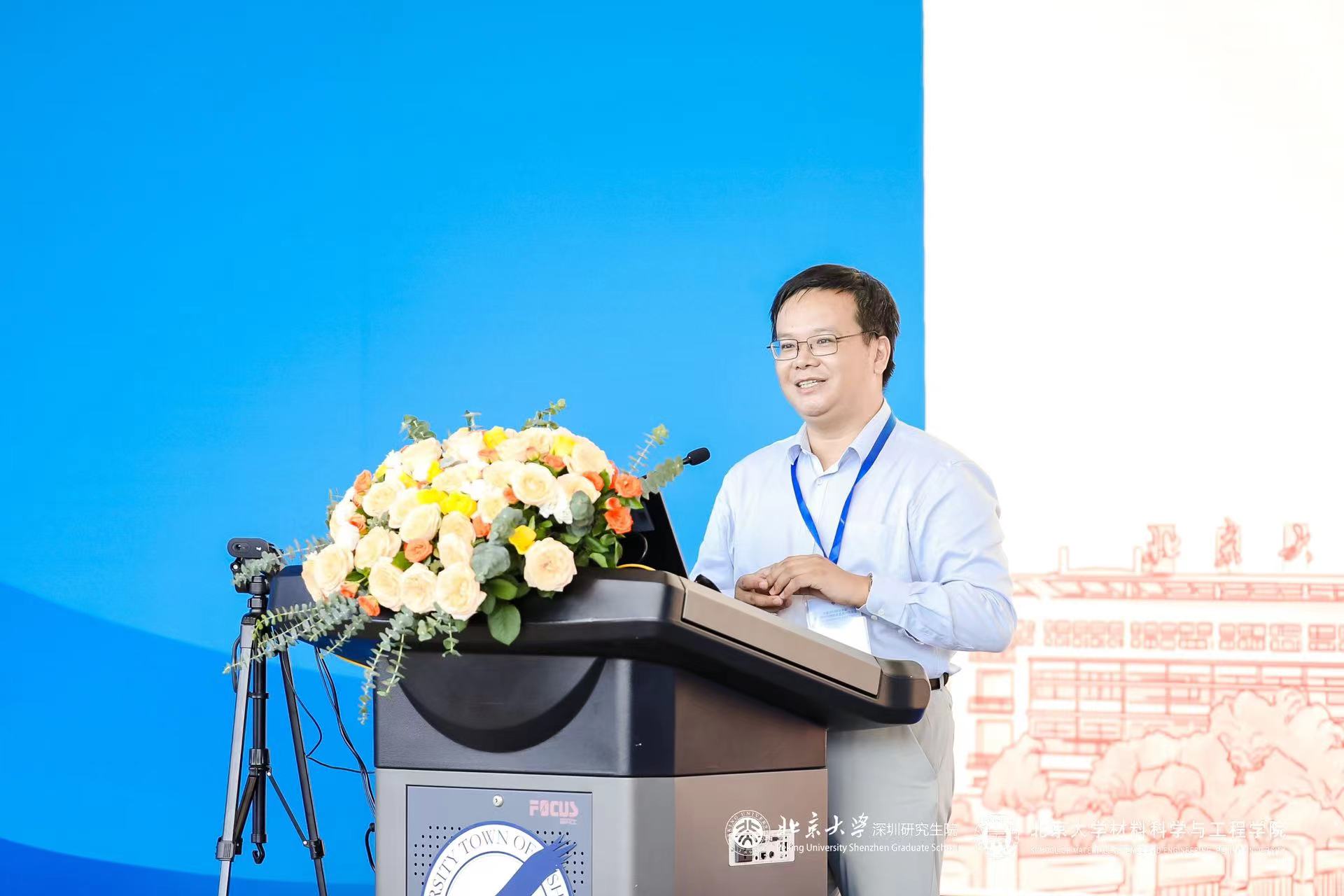
Tian Yonghong is delivering his speech.
Following this, Professor Zhan Xiaowei from MSE, PKU, presided over the next presentation session of the conference.
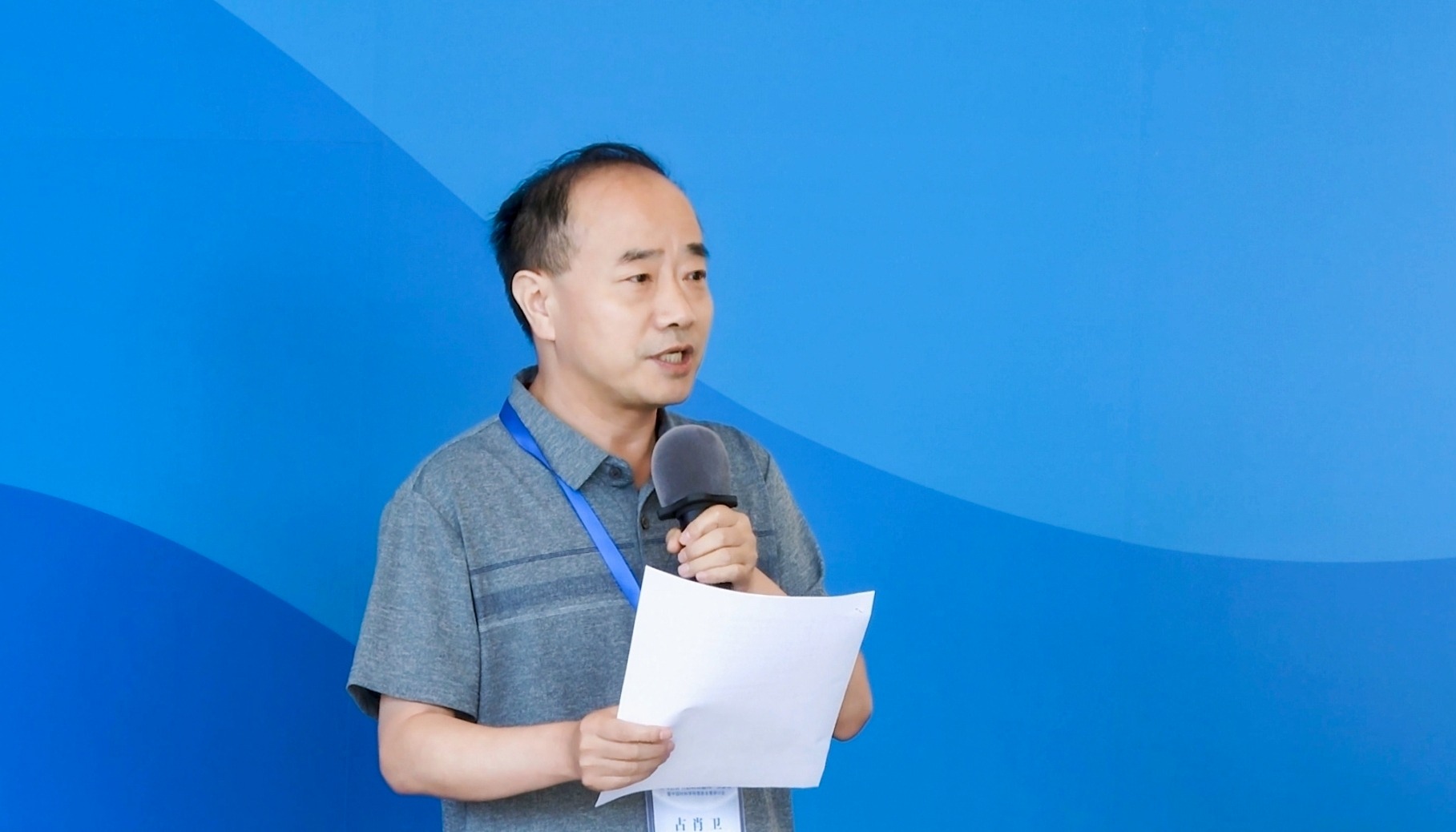
Zhan Xiaowei presided over the presentation section.
Dr. Yu Fan, General Manager of Huawei MindSpore Technology/AI4Sci LAB Director, shared his ideas from three aspects: “Full scenario AI framework MindSpore”, “The Progress of the Large Model Industry and the Practice of MindSpore”, and “The Progress of the AI Scientific Computing Industry and the Practice of MindSpore”. Taking the “Computational Chemistry Kit MindSpore Chemistry” as an example for the development of chemical materials, he focused on introducing the overall structure of MindSpore AI scientific computing in the industrial sector.
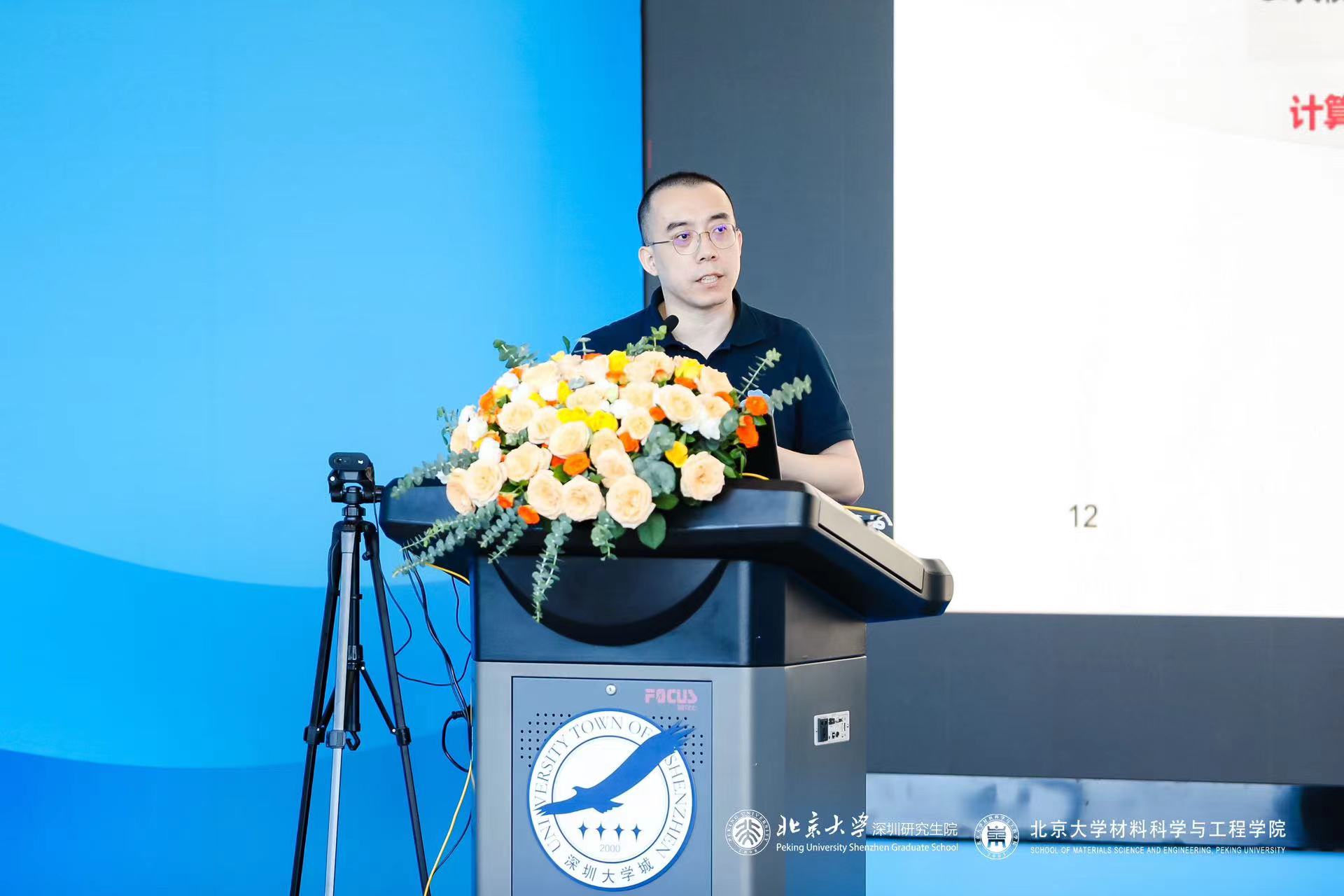
Yu Pan is making his presentation.
The theme of Professor Pan Feng, Associate Dean of PKUSZ, is “Exploration of Material Genes Based on Graph Theory and AI”. His presentation primarily covers “Methodology of Structure and Materials Research” and “Structure-Activity Relationship of Lithium Battery Materials”. Drawing from his practical exploration, latest achievements, significant breakthroughs, and a self-built platform, Professor Pan elaborated on “the application and integration of graph theory, material big data, artificial intelligence, and quantum chemistry”. His focus is on “developing graph theory-based structural chemistry and material genomics”.
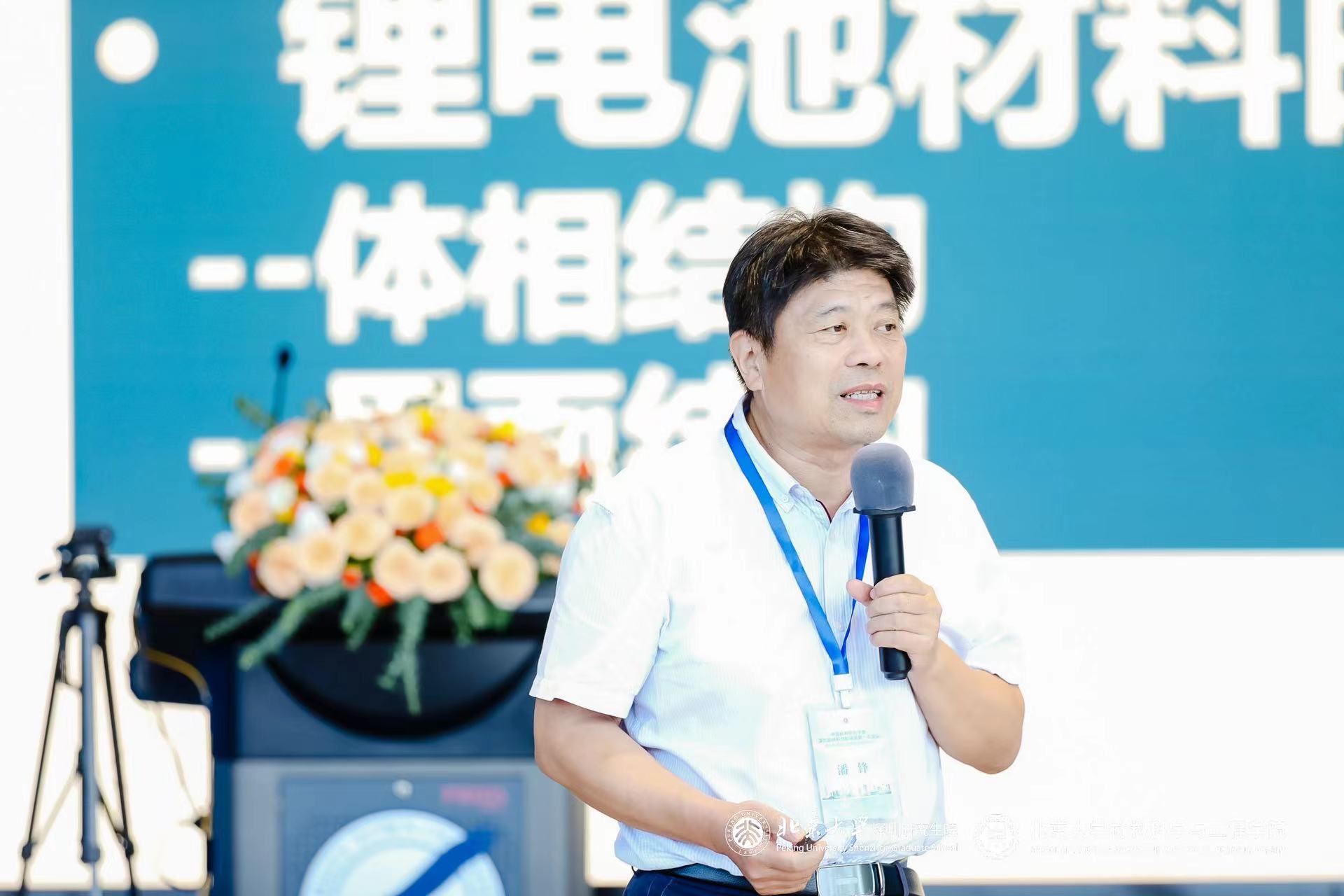
Pan Feng is making his report.
After the conference, the deans, teachers, and representatives of enterprises visited the PKUSZ campus, engaging in active discussions on various issues and the future development of teaching and research in the field of advanced materials in China.
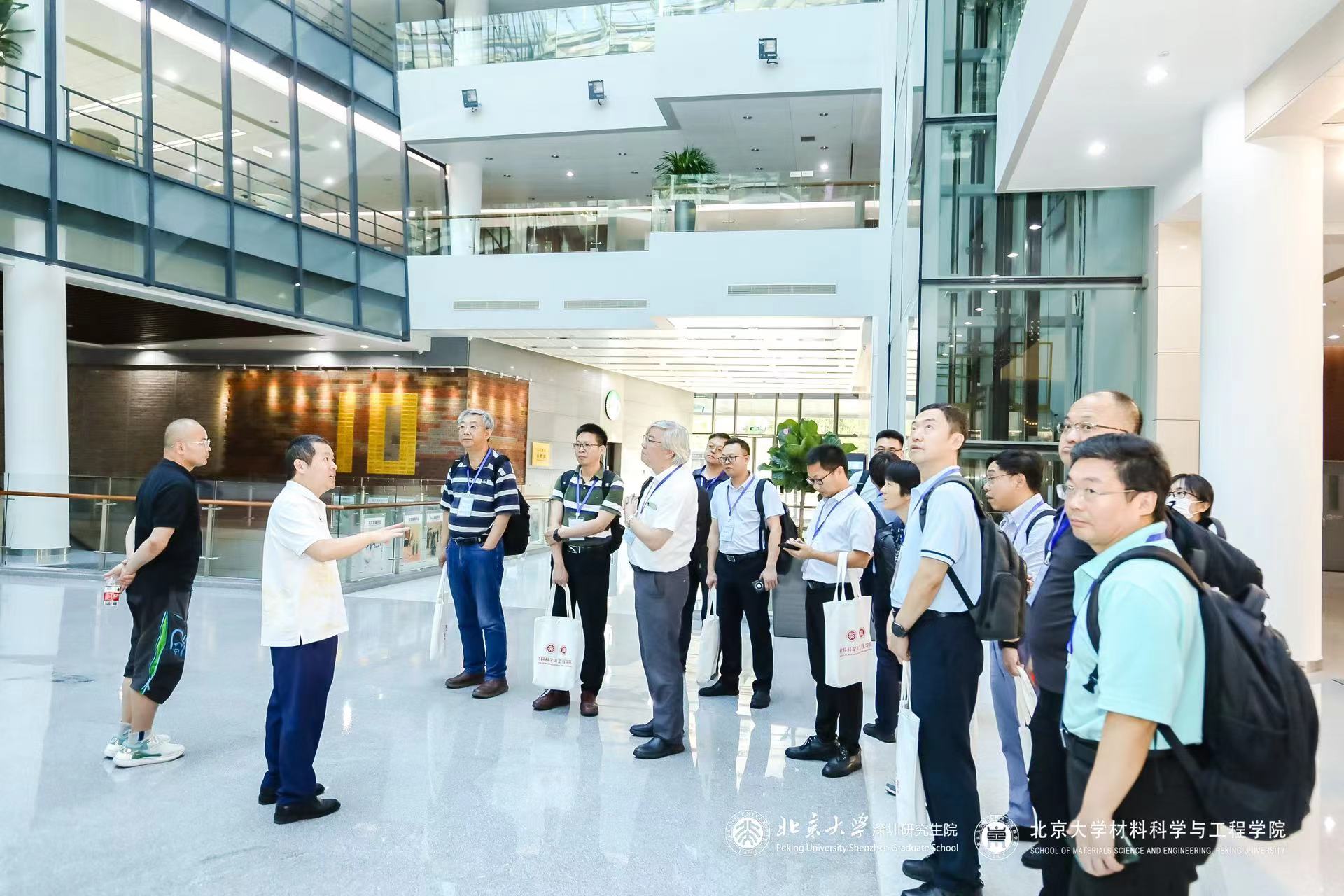
Attending representatives visit the campus of PKUSZ.
Currently, significant breakthroughs have been made in the development of the new generation of artificial intelligence. Guests from universities and business representatives of the Shenzhen Advanced Materials Innovation Alliance of the Chinese Materials Research Society gathered here to brainstorm effective solutions and strategies for “AI for Materials”. The academic community and industry are collaborating to address challenges and work together, aiming to provide stronger technological support and contribute more talent to the development of the advanced materials industry in Shenzhen and the GBA.
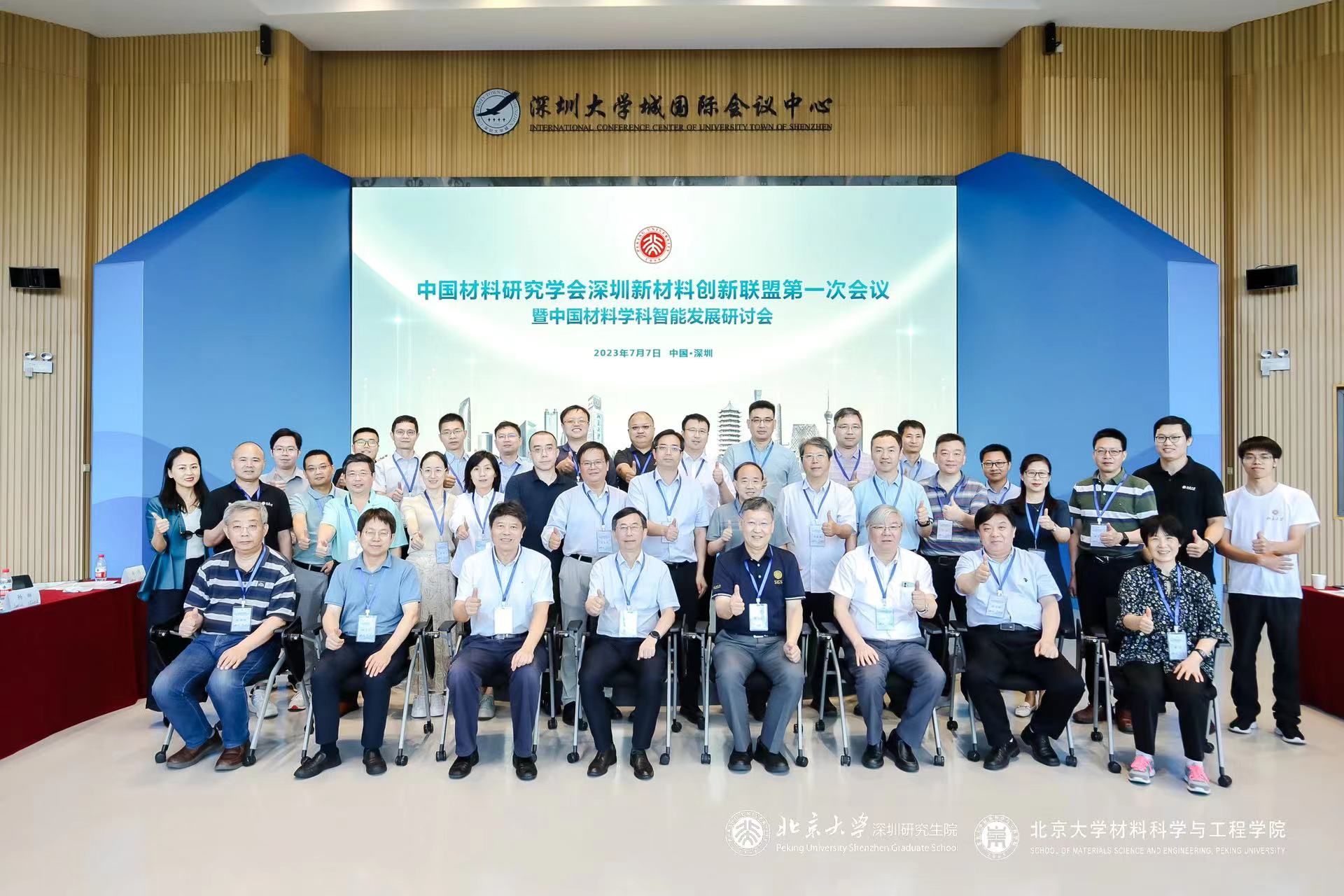
Group Photo